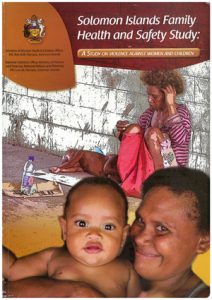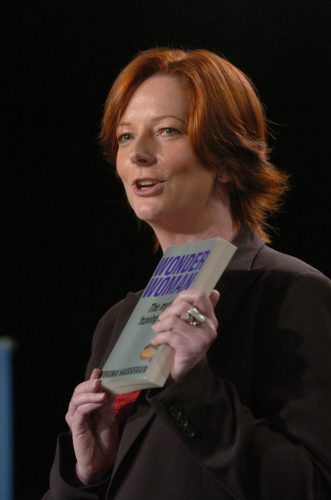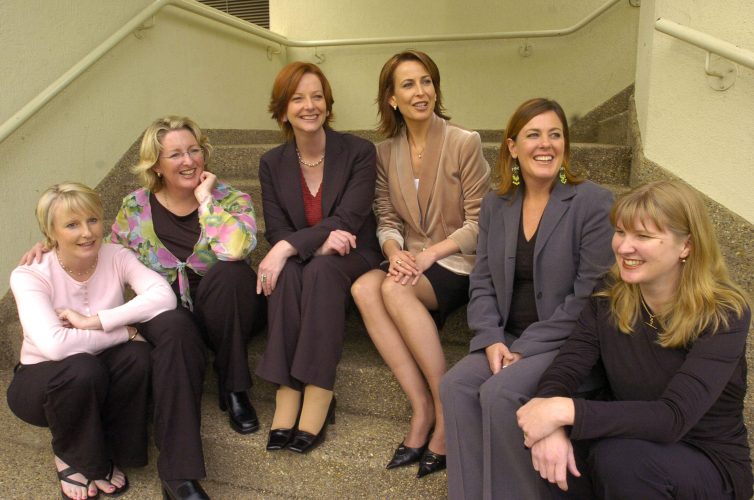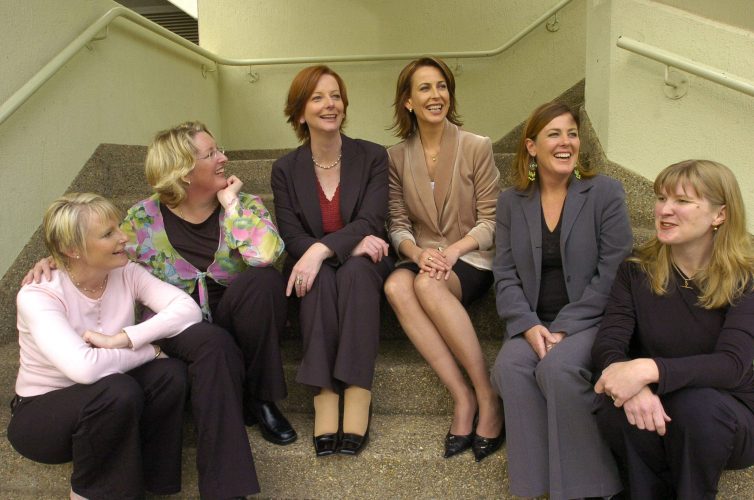It is inconceivable to me that any human can watch a mother give birth, pick up the baby. see that it’s a girl and, in disgust, throw it into a “slops pail” to die. And to do so while uttering “Useless thing.”
Chinese writer Xinran Xue describes her “absolute horror” at seeing a newborn’s tiny foot sticking out of the bucket in a peasant home in Shandong province. It’s clear she’s just witnessed the murder of a baby girl. Xinran’s story is detailed in last week’s Economist magazine, in a feature on “Gendercide” and the world’s missing 100 million baby girls.
We’ve long know about the Chinese preference for sons over daughters and the cruel determination born of a one-child policy. And we’ve suspected all manner of crimes are committed to abort female foetuses and ensure baby girls don’t survive.
Ending up in the “slops pail”, with her little foot sticking out, is probably one of the kinder cruelties. At least it’s quick. Other baby girls are slowly starved, or simply abandoned. But now the warped thinking that prizes baby boys above girls is set to cause a massive shortage of brides in China. Within ten years there will be up to 40 million more young Chinese men than women.
Yet China is certainly not alone in its blatant “son preference”. As the Economist reports, India’s sex ratios are also highly skewed in favour of males, along with South Korea, Taiwan and even Singapore. And it’s not just Asian nations. Former Soviet States such as Armenia, Azerbaijan and Georgia have all exploded with boys outnumbering girls.
So how many “slops pails” with tiny toes sticking out are there?
What is it about girls that make them so utterly undesirable? And what is it about women that make them so utterly dispensable?
While the so called crime of “gendercide” appears predominately an Asian problem, don’t for a minute think that Australia isn’t also complicit in the continued negating of females – as if they don’t matter.
In our own backyard – the Pacific region – it’s not baby girls who are dying unnecessarily every day – it’s mothers. A New Zealand report launched in Canberra last week by the Australian Parliamentary Group on Population and Development provides alarming reading. Some of the rates of maternal death among our closest neighbours are among the worst in the world. The death of pregnant women in Papua New Guinea is only surpassed by Afghanistan – where a woman dies from reproductive complications every 29 minutes.
And yet this scandal of female neglect rates little mention here. If Australian women were dying in the numbers our Pacific sisters are, there would be a public outcry.
Mention Fiji, Vanuatu, or the Solomn Islands and most Australians immediately think of aqua blue seas, beaches and holiday resorts. What we never choose to see is the extremely high rate of violence against women, the appalling lack of maternal care, the continuous daily deaths of pregnant women, the skyrocketing rates of teenage pregnancy and the outrageous legal sanctioning of discrimination against women.
A scathing United Nations Asia-Pacific Human Development report issued earlier this month points out that more than 60 percent of Pacific nations have no laws against domestic violence. This is probably why a recent report by the Solomn Islands Ministry of Women, written in partnership with AusAid, found that 73 percent of women thought it was OK for a husband to beat his wife – if he has a reason. Those reasons included “disobeying” a husband, or nagging him about his girlfriends.
In the foreword to that report the Minister of Health and Medical Services, Johnson Koli, lamented that violence against women was both denied and suppressed, yet was “inherent in gender-based inequalities” in the Solomons.
The research found that, while two out of every three women in the Solomons are subjected to physical and/ or sexual abuse by their partner, the majority believed they had no right to leave their husband, if he had paid a “bride price” to her family.
Culture-based discrimination against women sweeps the Pacific. Recently Vanuatu’s traditional chiefs challenged a 2008 law passed to protect women form domestic violence, saying it contradicted Vanuatu’s custom.
Traditional, cultural practices that assert male authority will always disadvantage women. So why do we continue to kowtow to them? Why are Australians so ready to adopt a lazy, cultural-relativist position when it comes to blatant and dangerous discriminations against women living in our Pacific neighbourhood?
The UN report pulled no punches when it said, “Too often, customs or religious beliefs have become a rationale for laws and legal systems to ignore … the multiple forms of violence that target women”.
When I asked New Zealand’s head of Family Planning, Jackie Edmond, a chief advocate for improving maternal health in the Pacific, why it is that so many women are dying unnecessarily in our region, she was blunt. “Women are just not seen as important”, she said.
And yes, it’s that simple.






